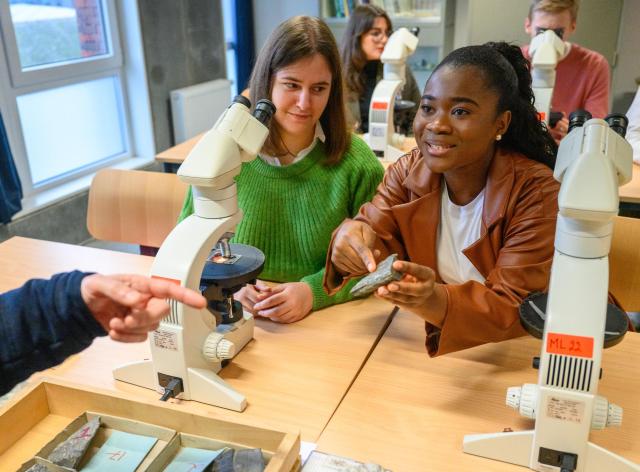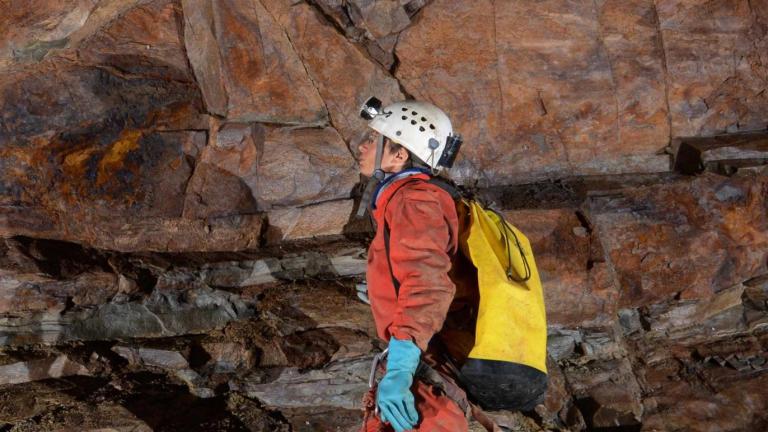Exploring the Earth and its past to prepare for a sustainable future.
Geologists interrogate rocks and landscapes to reveal the dynamic processes that shape our natural environment. Why is the Earth unique in our solar system? How did life develop here? How diverse are the rocks and minerals that make it up? Where can we find the metals we need for technological and sustainable development? How can we manage, protect and clean up our soil and groundwater? From the field to the laboratory, geology provides answers to these varied questions through an interdisciplinary approach combining exact and natural sciences.
The spectacular rocks sculpted by the Meuse and its tributaries in the Namur region have captivated European geologists for over two centuries. They illustrate major geological processes while tracing the evolution of our region over hundreds of millions of years. They are also home to numerous quarries that continue to fuel our local industry and economy.
Nowadays, the geologist plays an essential role in the energy transition. They identify and enable the extraction of metals and other resources crucial to the establishment of sustainable energies. Thanks to their understanding of the interactions between the subsoil and the environment, they contribute to land-use planning and the implementation of new infrastructures and buildings. In the age of space exploration, geologists also compare the Earth with the other planets in our solar system, to better understand the specific features of our "living" planet. These current themes are central to our research activities and continue to diversify the possibilities of outlets for our graduates.



